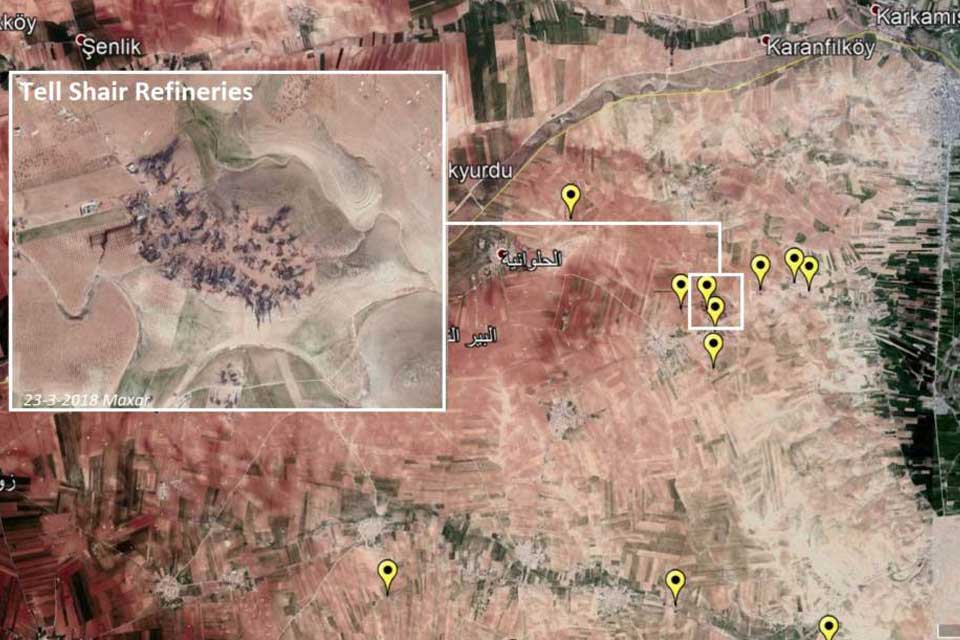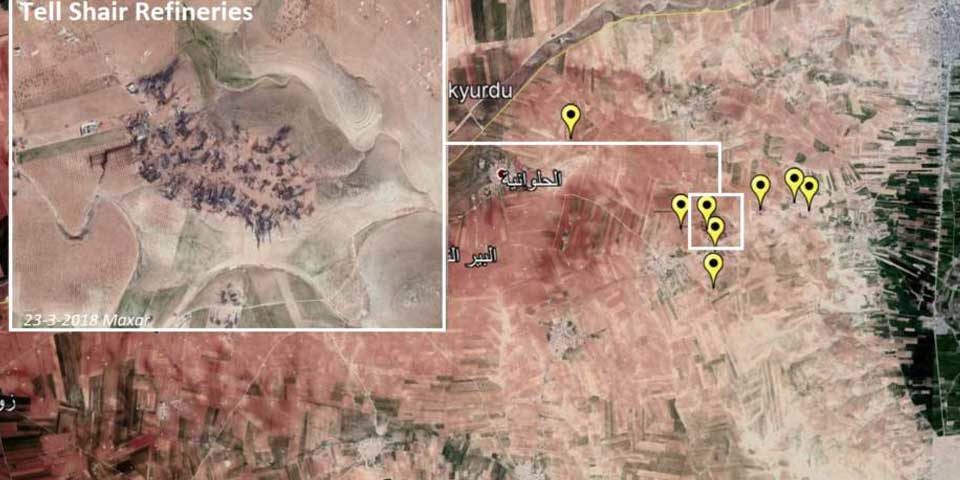In Syria, fuel for heating, cooking, and transportation is difficult to access and comes at huge financial and environmental costs.

This visual investigation aims to identify the vast number of makeshift refineries that at one point or continue to be used in Syria, and the huge environmental health hazards associated with these practices for civilians working in this industry. These are the main findings of this visual investigation:
- Using opens source information and satellite imagery, we identified roughly 300 clusters of refineries with between 1500-5000 refineries that were built and at some time have been used.
- Knowledge and expertise on producing refined oil from makeshift installation rapidly increased throughout the conflict, with improved and more secure installations being built.
- Exploding barrels and frequent fires made these places a serious health hazard for workers, while people living nearby have faced additional environmental health risks from air and water pollution.
- Displaced civilians were employed as cheap labour in larger clusters of refineries, among them many children and teenagers, while living in nearby camps.
- Documentation shows that at least 10 makeshift oil clusters were bombed by Syrian and Russian fighter planes in the period 2015-2019.
- In Idlib and Aleppo, these refining practices stopped after regime forces captured the area, or when oil supplies were halted due to military developments.





